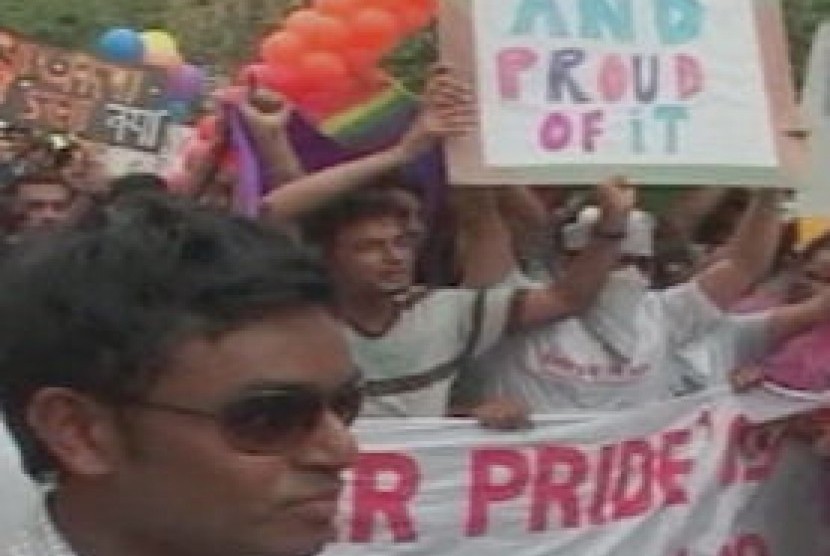REPUBLIKA.CO.ID, NEW DELHI -- The Supreme Court on Wednesday said gay sex will remain a criminal offence, dealing a severe blow to the largely-closeted homosexual community in the world's largest democracy.
The top court said the 2009 Delhi High court order decriminalising homosexuality is constitutionally unsustainable as only Parliament can change a law.
Outside the court, scores of gay rights activists and members of the community burst into tears; they had expected the court to rubber-stamp the 2009 ruling, which had been opposed by various religious bodies. Gay rights NGO Naz foundation said it would challenge the verdict.
The court's order means gay sex between consenting adults stays a criminal offence under Section 377, a 19th century law banning sex "against the order of nature".
The Supreme Court said there is "no constitutional infirmity" in the law, which left critics wondering about selective judicial activism.
"It is surprising that the court which does judicial review on many issues has put the ball in the court of Parliament to decide on homosexuality," said additional Solicitor General Indira Jaising. "People expect the highest court of the land to protect their rights."
The order is "a step backwards towards barbarism and medievalism," tweeted noted historian Ramachandra Guha.
Gay activists allege that the police use the law, which carries a punishment of up to 10 years in jail, to harass members of their community.
Though the court leaves it to the government to act, numerous flip-flops by the Centre has not encouraged activists. The election across largely conservative India in five months is also likely to weigh on the ruling Congress.
Law Minister Kapil Sibal said, "It's the Supreme Court's prerogative to test the constitutionality of our laws, it is our prerogative to make laws. On the validity of the law, the government must respect the court."
If Parliament runs, the government would take it up, he added, without spelling out a time-frame.
Home minister Sushil Kumar Shinde said such legislation would take time and require political consensus, currently missing.


